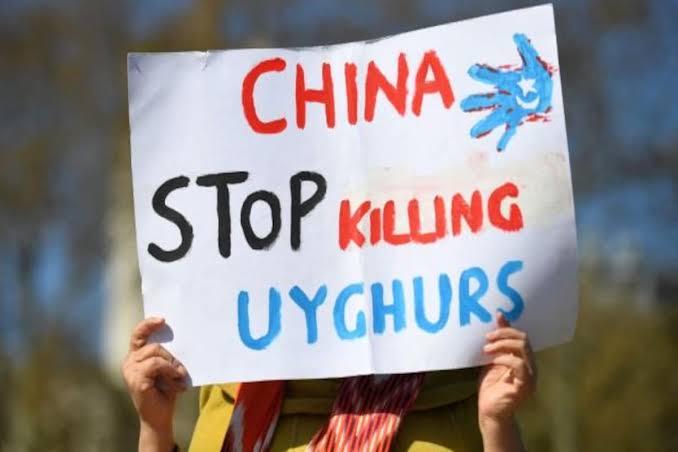MEA in action to dispel the impression that New Delhi made a blunder by abstaining from voting on Uyghur genocide.
New Delhi: Amid growing criticism of India’s move to abstain on a Western-led vote against China’s treatment of Uyghur Muslims at the United Nations Human Rights Council (UNHRC), New Delhi has decided to highlight its concern more frequently over the human rights situation in China’s Xinjiang region. Apart from this, the Ministry of External Affairs (MEA) has asked the diplomats to dispel “the impression” that by abstaining at UNHRC, India is showing any leniency for China. So, the diplomatic teams will be more active to accomplish both tasks.
In fact, several foreign policy commentators and politicians described “as a blunder” New Delhi’s decision to abstain from voting on a draft resolution at UNHRC on holding a debate on the human rights situation in China’s Xinjiang province. After this, at a press briefing, MEA spokesperson Arindam Bagchi in a bid to clear the air, said on Saturday, “India’s vote is in line with its long-held position that country specific resolutions are never helpful.” He also hastened to add, “The human rights of people of Xinjiang should be respected.”
He said, “India remains committed to upholding all human rights. India’s vote is in line with its long-held position that country specific resolutions are never helpful. India favours a dialogue to deal with such issues.” “We have taken note of the OHCHR Assessment of human rights concerns in the Xinjiang Uyghur Autonomous Region, People’s Republic of China. The human rights of the people of Xinjiang Uyghur Autonomous Region should be respected and guaranteed. We hope that the relevant party will address the situation objectively and properly,” Bagchi added.
The MEA’s statement is being seen by many as an attempt to course correct after the “blunder” at UNHRC. However, several diplomats at the MEA do not see India’s stand as “any blunder or, for that matter, the ministry’s statement as any course correction”. Sources told this newspaper that India will continue to be critical of China’s treatment of its minority community “more vigorously”. “The MEA remarks related to India’s stand at UNHRC has set the tone and tenor for the diplomatic campaign to be carried out to change the perception and clear the air,” sources said.
With this objective in view, India will be more vocal about the developments in Xinjiang. “Regular monitoring of the situation there is already being done by the Indian embassy in Beijing,” sources said. The other diplomatic agenda will be to keep delivering tough messages to China over its bid to block resolutions at UNSC seeking blacklisting of Pakistan-based terrorists, say sources. This will be aimed at drawing global focus to China’s behaviour that “is weakening the war against terrorism”. Moreover, this will also help India to send out a message that India has not at all changed its approach of tough posturing towards Beijing despite abstention at UNHRC.
The diplomats also explain that India’s move to abstain from voting on a “country specific” resolution is also a message for the West that uses the forum of UNHRC to serve its human rights agenda against countries of its choice. There is no denying that India has also been targeted, say sources, adding that New Delhi cannot be party to any political agenda of any bloc at the UN. India abstained not only on the vote against China’s treatment of minority Muslims, but also from voting on another resolution urging Sri Lanka to deliver on commitments to protecting Tamil minorities.
External Affairs Minister (EAM) S. Jaishankar once told the UN that the human rights issues are best pursued through dialogue, consultation and cooperation amongst states as well as technical assistance and capacity building. “Our approach to the UN Human Rights Council is guided by our spirit of engagement, dialogue and consultation.” This has been Jaishankar’s clear-cut message to the West and all the other countries that seek to misuse the platform to embarrass one nation or the other. Jaishankar also stressed on giving respect to the principles of non-interference in internal affairs and national sovereignty.
Meanwhile, the stand of the Islamic nations, many of which voted in favour of China at the UNHRC, following which Beijing won the vote to stop the UN body from debating the Xinjiang genocide, has been criticised. Islamic countries like Qatar, Pakistan and UAE voted against the debate on the persecution of Muslims in China. “The move to vote against debate will come as a setback to credibility and image of these Islamic countries. Their double faced diplomacy got exposed,” says a diplomat. They have been so vocal about Muslims’ rights in India, say diplomats.

